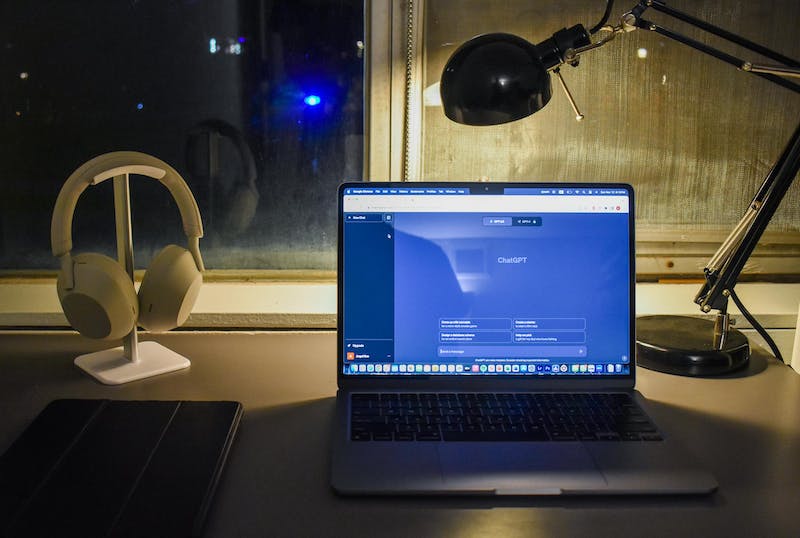Electrical and Computer Engineering scholar Pramod Viswanath, known for his work in artificial intelligence, has coined his creation as “Blockie.” As an associate professor, he imparts knowledge and guidance to his advanced executive class.
Viswanath humorously described Blockie to The Daily Princetonian as “ChatGPT on drugs,” emphasizing the advanced capabilities of his design.
The emergence of large language models (LLMs) like ChatGPT has sparked discussions in academia since its launch last year. ChatGPT, short for Chat Generative Pre-trained Transformer, leverages a vast repository of data from the internet to generate text that mimics human conversation and context. This technology has the potential to craft code snippets, textual descriptions, essays, and mathematical problems by predicting the most fitting words and information.
In response to the growing interest in AI tools like ChatGPT, the Office of the Dean of Princeton College and the Dean of the Graduate School issued a directive in January 2023 titled “AI & ChatGPT Guidance for Teaching.” This memo outlines the university’s stance on integrating AI tools into the educational environment and provides instructions for faculty members on leveraging this technology effectively.
While some professors have embraced AI tools for educational purposes, others have imposed restrictions on their use in certain courses. For instance, the COS126 course at Princeton prohibits students from utilizing such tools extensively, emphasizing the importance of independent learning and critical thinking in foundational computer science concepts.
Despite varying opinions among faculty members regarding the integration of AI in education, there is a consensus that AI tools can enhance learning experiences when used appropriately. Viswanath and his teaching assistant, Tianle Cai, developed Blockie specifically for the ECE 470 course on Blockchains, tailoring the AI assistant to assist students in navigating complex programming tasks related to Rust, a novel programming language taught in the course.
Blockie has proven to be a valuable resource for students in ECE 470, streamlining the learning process and providing tailored support for programming assignments. While Blockie’s effectiveness is acknowledged, students are encouraged to verify its outputs independently to ensure accuracy and deepen their understanding of the subject matter.
As AI technology continues to evolve, educators like Viswanath and Cai are optimistic about its potential to revolutionize the academic landscape. By integrating AI assistants like Blockie into classrooms, students can benefit from personalized learning experiences and gain insights into cutting-edge technologies shaping their fields of study.
The adoption of AI tools in academia reflects a broader trend towards incorporating innovative technologies into educational practices. As educators explore the possibilities offered by AI, they are paving the way for a more dynamic and interactive learning environment that prepares students for the challenges of the digital age.






